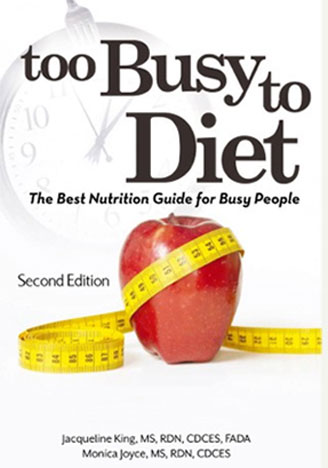Avoiding Foodborne Illnesses
in The Too Busy to Diet Blog on October 23, 2013

By Jennifer Martin, Dietetic Student at the University of Illinois at Chicago
Cold and flu season is upon us, so we are already trying to avoid bugs that leave us sneezing, coughing, and blowing our nose every 5 minutes. You probably already know the basics of cold and flu prevention (washing hands, bundling up in the cold weather, etc.), but how about the knowledge that you need to prevent foodborne illnesses?
Eating food that is contaminated with pathogenic bacteria can make you severely ill and will lead to death in the worst of cases. Here are some easy food safety rules to practice in your everyday life that can help to keep the bad microscopic guys out of your body:
- Read the news. Know about food outbreaks that may affect places where you shop.
- Make sure that your fridge is at the accurate temperature. Refrigerators should be around 40 degrees F and not go above that. If you don’t have a refrigerator thermometer, you should consider getting one.
- Defrost meats and poultry on the bottom shelf of your fridge in a leak-proof container.
- Wash your hands thoroughly with soap and water after handling raw meat and poultry. Always. The same applies to any surface that they touched, including knives, cutting boards and counter tops.
- Staying on topic with raw meats and poultry, always use separate knives and cutting boards when also chopping foods such as vegetables or cooked foods to avoid cross-contamination. Avoid mixing raw and cooked food when preparing a meal, too.
- Owning a meat thermometer is never a bad idea.
- If you are going to keep cooked food as leftover, remember this rule: food should never be left out for more than 2 hours at a time and 4 hours all together. This applies to groceries and doggie bags too; make sure they can get to your fridge within 2 hours!
- It’s better to store leftovers in several small separate containers than in one large mega container. Bacteria will multiply faster in larger containers.
- Check expiration dates on your food. If something doesn’t look or smell right, then get rid of it!
- Here’s a useful chart from the FDA tells us how long we can keep specific foods in the fridge: http://www.fda.gov/downloads/Food/FoodborneIllnessContaminants/UCM109315.pdf
There is also great info about food allergies in Too Busy to Diet, so be sure to read it!
Buy the Too Busy to Diet book
Get your copy of the definitive diet reference guide and healthy eating book today. Stop reading those misleading fad diet books and read an easy to follow book on how to lose weight and keep it off from actual Registered Dietitians.

Recent Posts
- Barbeque Turkey Meatloaf
- Pescado a la Veracruzana
- Juicy Pork Chops
- Rotasserie Chicken Casserole
- Grilled Salmon & Blueberry Salad